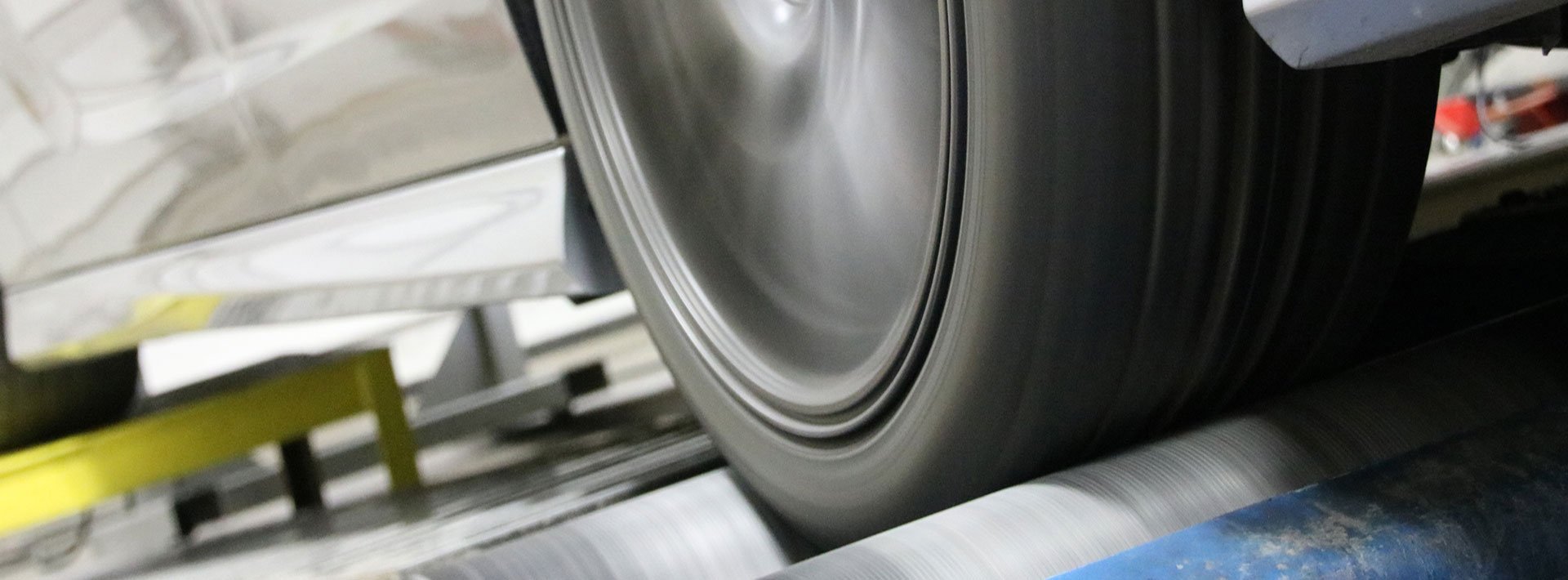JIS D4239 Alloy Wheel Salt Spray Corrosion Test
The JIS D4239 Alloy Wheel Salt Spray Corrosion Test is a critical method for evaluating the corrosion resistance of alloy wheels, particularly those used in automotive applications. This test simulates real-world environmental conditions to assess how well the alloy wheel will withstand exposure to salt spray and other corrosive elements.
The test adheres to Japanese Industrial Standard (JIS) D4239, which specifies a procedure for determining the resistance of metallic materials to corrosion by neutral salt spray. This standard is widely recognized in the automotive sector for its relevance to the durability and longevity of alloy wheels under harsh environmental conditions.
The test involves subjecting a specimen (alloy wheel) to an environment where it is exposed to a salt solution spray, typically at 5% sodium chloride concentration, with a temperature range between 35°C and 40°C. The exposure time can vary depending on the desired outcome but commonly ranges from 24 hours to several weeks.
The process of testing alloy wheels for their resistance against salt spray corrosion is crucial in ensuring that automotive components meet stringent quality standards, thus enhancing vehicle reliability and safety. By conducting this test, manufacturers can identify potential weaknesses early in the development phase, allowing for necessary improvements before product release.
Understanding the importance of this test requires knowledge of its critical parameters, such as temperature control during exposure, humidity levels, and salt concentration, all of which are meticulously maintained to ensure accurate results. The apparatus used includes a specialized chamber capable of simulating real-world conditions effectively. Compliance with JIS D4239 ensures that alloy wheels undergo rigorous testing, providing valuable data for quality assurance.
For automotive manufacturers, this test is essential in maintaining the integrity of their products under demanding environmental conditions. It helps them to ensure that their alloy wheels can withstand harsh climates without compromising performance or safety. By adhering strictly to JIS D4239 guidelines, companies demonstrate a commitment to product quality and reliability.
The results from this test are significant in the development of new alloys and coatings for automotive components. They provide insights into which materials perform best under salt spray exposure, enabling engineers to make informed decisions about material selection. This not only enhances the longevity of the alloy wheels but also contributes positively towards sustainability goals by reducing waste due to premature failure.
In summary, the JIS D4239 Alloy Wheel Salt Spray Corrosion Test plays a pivotal role in ensuring that automotive components meet rigorous quality standards. Its importance cannot be overstated, especially given the increasing demands for durability and safety across various sectors of the industry.
Industry Applications
- Automotive manufacturing: Ensuring that alloy wheels are robust enough to withstand salt spray corrosion is vital for automotive manufacturers aiming to meet rigorous quality standards.
- R&D in materials science: Testing alloy wheels under JIS D4239 conditions helps researchers and developers understand the optimal composition of alloys used in vehicle components.
- Supplier evaluations: Automotive suppliers undergo this test to ensure that their products maintain high levels of durability, reliability, and safety.
| Industry | Specific Application |
|---|---|
| Automotive Manufacturing | Evaluating the longevity and reliability of alloy wheels under harsh environmental conditions. |
| R&D in Materials Science | Understanding material properties to develop new alloys for vehicle components. |
| Supplier Evaluations | Ensuring suppliers' products meet stringent quality and durability standards. |
Customer Impact and Satisfaction
The JIS D4239 Alloy Wheel Salt Spray Corrosion Test significantly impacts customer satisfaction by ensuring that alloy wheels are durable and reliable. By meeting this standard, manufacturers can guarantee that their products will perform well even under challenging environmental conditions.
Customers benefit from the enhanced safety and longevity of these components, which reduces the likelihood of premature failure or breakdowns on the road. This translates into increased customer satisfaction as they trust that the vehicles they purchase are built with high-quality parts.
Furthermore, compliance with JIS D4239 helps automotive manufacturers maintain a competitive edge in the market by demonstrating their commitment to excellence and quality. This not only enhances brand reputation but also fosters long-term customer loyalty through consistent product performance.
Use Cases and Application Examples
The JIS D4239 Alloy Wheel Salt Spray Corrosion Test is applicable to various use cases in the automotive industry, including:
- Evaluating the resistance of alloy wheels to salt spray corrosion.
- Testing new materials for their suitability as components in vehicles.
- Ensuring compliance with international standards and regulations.
For example, a leading automotive manufacturer might use this test during the R&D phase of developing a new alloy wheel design. The results would help them refine the material composition to achieve optimal corrosion resistance while maintaining strength and lightness.





